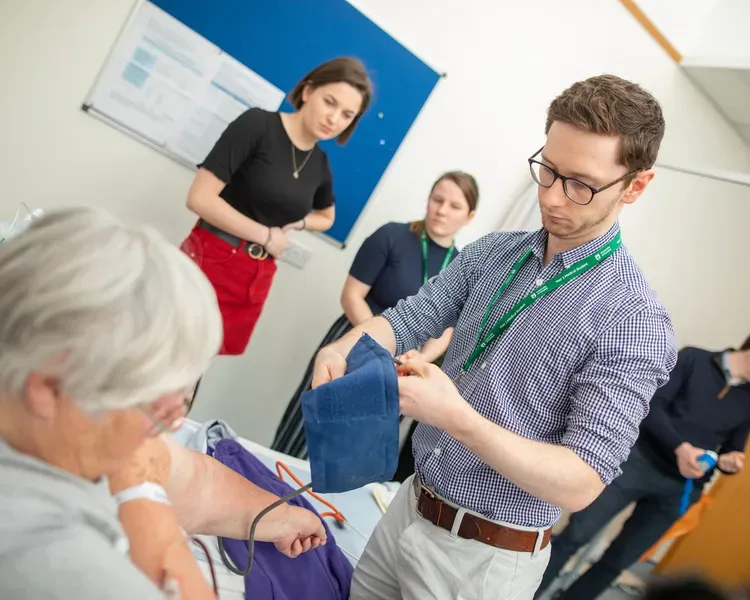Using your subject: Medicine
Learn how to use a degree in Medicine to enhance your career prospects

In this Medicine subject area, you’ll find careers information and signposts to relevant resources.
Medical specialities and alternatives
A range of medical career pathways awaits you on the completion of your medical degree. The best way to find out about these pathways and career options is to speak to your academic and clinical lecturers and tutors. Speaking to your Student Support Adviser is a good place to start.
Making a decision about which medical pathway to follow is not always straightforward. You’ll need to think about your preferences and interests, your skills and strengths and weigh up the pros and cons of each option. Find out more about some of the main medical specialities and pathways and browse what can I do with my degree in medicine?
The British Medical Journal website has a series of in-depth guides to a wide range of medical specialities.
If you’re not sure that a conventional medical career is for you explore different career avenues for doctors and alternatives to practising medicine.
Not sure if medicine is the career for you; open up your careers options with the Career Planner Quiz.
Intercalated degrees
During your studies, you might consider taking time out to pursue an intercalated degree. This is the opportunity to study full time for a year in a related subject of interest to you and gain a BMSc degree.
Why do an intercalated degree?
Intercalating gives you the opportunity to pursue a topic or area of interest and hone your skills and knowledge in this area. They are of particular interest to those considering a career in academic medicine, but you can pursue a wide range of interests and develop skills relevant to many different areas of medicine. Completing an intercalated degree will give you extra points for your application into Foundation Training. The BMA gives more depth on the benefits of intercalating.
What can I study?
Dundee has a range of intercalated degrees available or you may want to investigate other options via the UK Intercalate Database. You might want to discuss your options and their implications with your Student Support Adviser or your careers adviser.
Help with applying
When making your application to an intercalated degree, you’ll need to write a personal statement detailing your motivation and enthusiasm for the course in question, your academic abilities, your relevant experience and suitability, as well as how you see the degree benefitting your future studies and career. Read more about writing personal statements. You can get written or verbal feedback on your personal statement from your careers adviser.
CV advice
When applying for Foundation Training and beyond, you may be required to submit a CV. Even if you’re not asked for a CV when applying for a job, preparing and keeping a CV up-to-date is an excellent way of keeping track of your career and achievements. You may find it useful to have a CV when applying for work experiences, searching for part-time work, applying for electives or taking advantage of opportunities to shadow consultants etc. The BMA has information about creating a Medical CV including an Example CV. You can also browse our CVs page.
Develop your skills
While you’re at university, you may want to think about ways to gain extra points for your Foundation Training application and to make you stand out from the crowd.
Joining relevant medical and non-medical societies can broaden your experiences, enhance your knowledge and develop your careers network. A good starting point to find out about clubs and societies is DUSA. Taking on roles of responsibility, e.g. Class Rep Committee, MSC roles etc., will further enhance your skills and experience.
Networking with medics with whom you come into contact throughout your studies is an excellent way to learn more about medical specialities and can lead to research, shadowing or work experience opportunities. Read more about successful networking.
Opportunities to evidence your leadership skills are useful for your future career. The Careers Service offers a range of skills awards to help you showcase your abilities and experience in areas such as Leadership and Business as well as gain recognition of your Global skills from time spent abroad (e.g. on elective).
The Careers Service are here to support you with any aspect of your career planning. Get in touch to speak to your careers adviser.